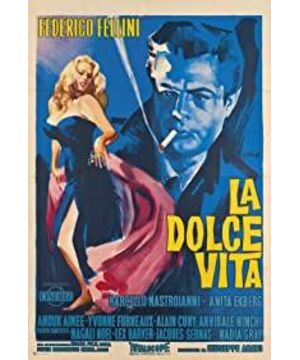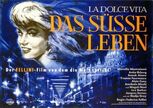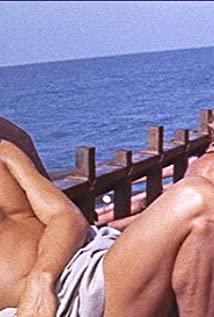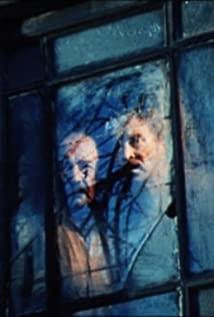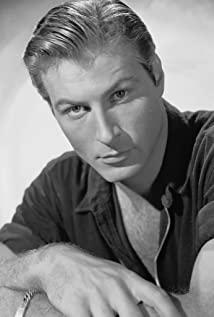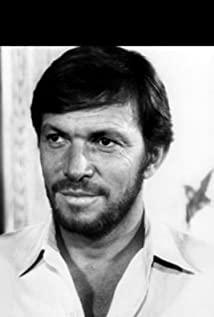Fellini’s two films are the pinnacles of my heart, one is "Eight and a half", the other is "Sweet Life", "Eight and a half" is undoubtedly more mature and has reached perfection in artistic technique. Rini’s most successful work, "Sweet Life", which makes me fall in love, lies in its scalpel-like cold brushwork. "Compared with it, it is more like an apocalypse than a fantasy poem.
When watching Fellini’s movies, I always have a lot of emotions, but when I write it in writing, or when I want to tell others, I always feel empty and nothing can’t be hurt. You have to watch it a few times to realize one or two, maybe This is the artistic charm of great movies, as Roger Ebert said: “Any film director who puts his thoughts on the picture is destined to only produce second-rate works, because what he resists is the essence of film art.” Movies Art is like text art. It needs to build images. There is a subtle relationship between the images to make it easy for the audience to associate, but not to kidnap ideas. It should have sufficient openness,-"withered vines, old trees, faint crows", "deserts" The lonely smoke is straight, the river is setting over the sun.”-Excellent movies also create unique impressions for audiences through fragments.
It is precisely because of the above-mentioned openness that this film has many interpretations, pointing out dark lines such as "Seven Peaks of Rome", "Seven Dawns" and "Seven Deadly Sins". Try to analyze the essence of the movie.
In my opinion, the film seems to consist of an opening, an ending, and "one-act dramas" that are not very closely related to the eleven acts in between. The opening and ending seem to be incompatible with the content of the film, which is slightly absurd. I will elaborate on this later. They are listed below:
Opening: The image of Jesus
descends from the sky. Act 1: Marche Romana. The prostitute stays overnight.
Act 2: Emma commits suicide and seeks medical treatment.
Act 3: Marcello's obsession with Sylvia. Act
IV: Marcello. inside the church in case of an old friend Stan
act V: Our Lady of farce
sixth curtain: Stan party within the
seventh screen: father visiting
eighth screen: castle party, Taking a dialogue
ninth screen: Marcello and Emma quarrel, compromise
Act 10: Steiner's suicide Act
11:
End of the crazy party : The strange fish
movie shows us three problems:
1. The absurd and meaningless
movie of modern life shows us the living conditions of these types of people: Reporters, movie stars, power class, rich people, intellectuals, religious people. If we think about the life purpose of each character in the film, it seems that we can’t get the answer. They don’t seem to be happy, and they all make crazy "sweetness" to "enrich" their lives. Movie stars Marlena and Marcello are in the first act. In the conversation, Marlena mentioned that she wanted to live on the island, but she suspected that she would not go. She would not stand up even if she mentioned that she was upside down, and mentioned the ubiquitous pressure; in Act Six, Steiner told Ma Chero's silence in the middle of the night frightened him, why did he fear silence? I am afraid that we are afraid of ourselves, that we are born into the world, but find that the time we lived in has no meaning in life. It is so absurd that all the characters in the movie are at a loss in this, and this fundamental self-denial has always been around. Marcello disturbed him. Literature and art can't save Steiner, money can't save Marlena, God can't lead the people out of trouble, nor can ideals save Marcello.
2. Crazy dog-like social disease
journalists are undoubtedly the most common profession in the film. They are vulgar, take the pain of others as entertainment, and pursue crazy curious hunters. Is this the profession of journalists that is so inherently vulgar? Probably not. Marcello said in the eighth act: "Usually the audience asks us to exaggerate the facts." The reporter is not the culprit. It is just the epitome of a huge social illness. The audience's curiosity and dirty psychology are as pervasive as a tabloid reporter.
The madness of the church people is another aspect of the social illness. The essence of religion has disappeared here. The enthusiasm of the church people can only be regarded as heresy. The people who come to visit are either so lively as curious hunters or pray for God but not. The worshipers of the gods, the people who tear down the sacred tree are the biggest irony.
Everything is nothing but the madness of everyone.
3. Individual islanding tendency, ineffectiveness and inefficiency of communication
I personally think that this is a point that the film is trying to express. The image of Jesus at the beginning of the film and the dead fish at the end didn’t realize until I watched it for the third time. The reason why the opening and ending are designed so unreasonably is because It is necessary to highlight the absurd atmosphere of the film and imply something. The opposition between the sacred and the vulgar can be seen everywhere in the film. The tone is laid at the beginning and the end. Through this extreme opposition, the understanding of the confusion and pain of the character is increased. The idol is beautiful, but it It is fake, the strange fish is ugly, but it is real. In addition to this antagonism, there is another detail at the beginning and end that hints at the tone of the film-the loneliness of communication failure and the inability to save oneself-at the beginning of the film, Marcello could not communicate with the beautiful woman who is sunbathing because of the roar of the helicopter. The sound of the waves could not hear the call of the angel on the other side.
Although there was an attempt by Marcello to redeem himself in the whole film, it quickly failed (Kojima Writing), and most of them were attempts to gain communication, but all around Marcello were useless noises (Emma Confession, tabloid reporters follow, etc.), and faced with someone who might give him redemption, Marcello fell into a quagmire that could not communicate with him (eagering for Marlena’s everlasting love, but found that he could not understand her at all— The eighth act, the castle talks through the air; eager to get the transformation of his soul by the intellectual Steiner, but find that it has not found the pain and disputes in Stein’s heart at all-the church plays Bach’s Toccata and commits suicide; longing for it The father pointed the way to his life, but the father and son are always separated-father and son sit opposite each other at the French dancer's house), whether it is a lover, a friend, or a relative, Marcello can't get into each other's heart, and Marcello finally has nowhere to ask for help And go crazy.
The dilemma of modern people's communication seems more difficult to detect than the previous two points, but I always firmly believe that it is one of the manifestations of modern diseases, and it is also the dilemma that the film focuses on. Sotta said: “Only the slaves rowing in the scull know each other, but we misunderstand others politely, so others should misunderstand us.” The development of media seems to make our communication more smooth, but we are more lonely. This kind of loneliness is unprecedented. Everyone becomes an isolated island. Language seems to be sick, communication becomes modal and inefficient. We can hardly understand others, even our relatives, this kind of lonely emotion and life. The insignificant interweaving of, aggravates the loss of modern people.
Fellini showed us this dilemma: This is a crazy age, when sentient beings are flying around like flies, the protagonist Macello seems to be a little different, he stepped on the frenzy in the mud (as a tabloid Reporter, there is a fiancee who can only make love and cooking), with the other foot trying to move towards the light (Marcello expresses his desire for change many times and makes a difference); in the "self", Marcello meets him The representative of the id-Sylvia, Marcello quickly became addicted to it. Sylvia became an intertwined body of his complex desires, but the communication between Marcello and Sylvia failed. In the "self", he had difficulty choosing between Marlena and Emma. His attempt to obtain true love from Marlena failed. In the end he failed to understand Marlena and tried to get rid of Emma's superficial "maternal love". "After a big fight, he still compromised and took Emma back. At the "superego" level, Marcello thought he knew Stanley, and hoped that he could redeem himself in this cultural circle, and eventually did something, but Stanley's suicide made Marcello completely lost. Marcello was unreliable and unable to communicate with the id, ego, and superego, so Marcello became a part of the camp of sentient beings and fell into a state of madness in the final meeting.
Every time I watch "Sweet Life", I always fall into a kind of inexplicable sadness. This may come from the sense of substitution of the role of Marcello. Every one of us has been as lost as Marcello, like a newborn baby. Looking at the world with the same curiosity, both having our own dreams and being in the same fashion with this world, we are also reflecting on the meaning of our lives in the middle of the night, facing hope again and again, and finally facing disappointment and despair again and again, hoping for ourselves With a good Hollywood ending, but ultimately unable to look directly at the tragic situation of himself breaking the jar, Marcello is the epitome of every modern man who is contradicting us.
The cross-dresser said: "By 1956, everyone will fall." Nietzsche's prophecy is being fulfilled-drugs are replacing trophies. The sweetness of life that Fellini said can be seen everywhere around us, and we use this sweetness to stop coughing.
(The soundtrack and actors are almost perfect, so I won’t repeat them here.)
View more about The Sweet Life reviews


